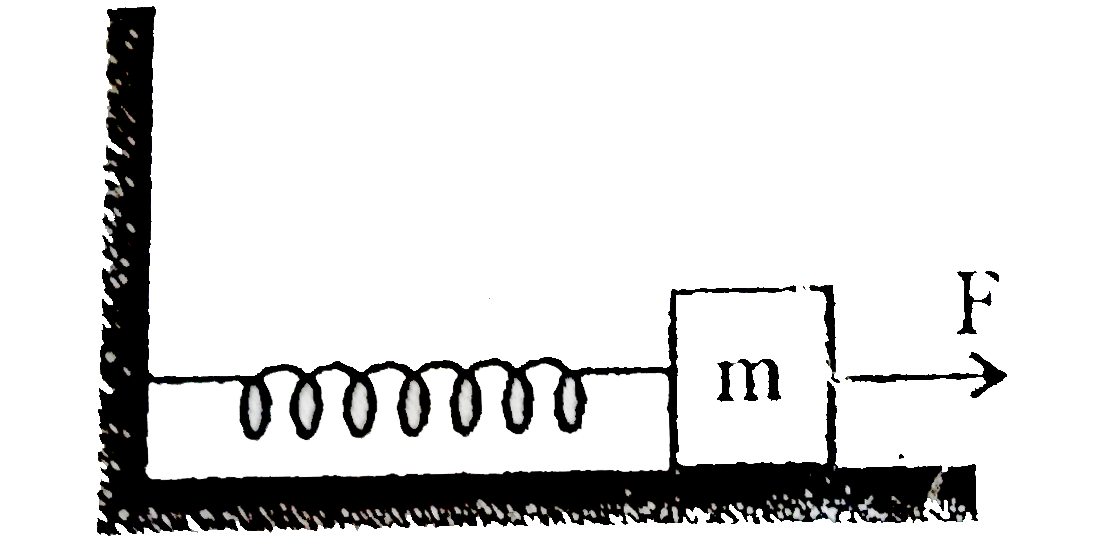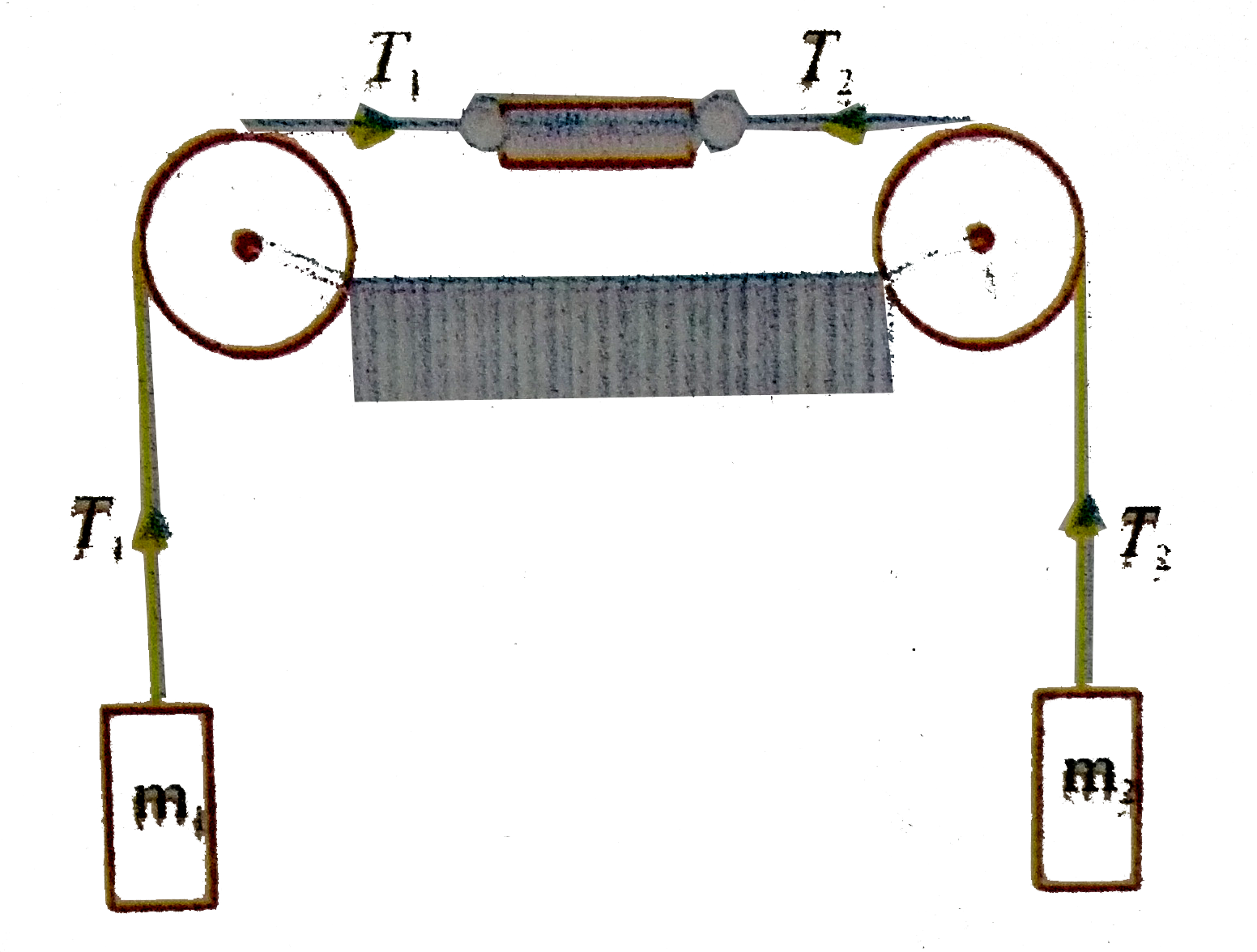Two trolleys of mass m and 3m are attached by a spring. The spring was compressed and then released , they move off in opposite direction and comes to rest after covering distances s1 and s2 respectively. Assuming the coefficient of friction to be uniform , the ratio of distances s1:s2 is
1:9
1:3
3:1
9:1
The correct Answer is:B
Step by step video, text & image solution for Two trolleys of mass m and 3 m are attached by a spring. The spring was compressed and then released , they move off in opposite direction and comes to rest after covering distances s_(1) and s_(2) respectively. Assuming the coefficient of friction to be uniform , the ratio of distances s_(1) : s_(2) is by Physics experts to help you in doubts & scoring excellent marks in Class 11 exams.
Updated on:21/07/2023Topper's Solved these Questions
- NEWTONS LAWS OF MOTIONBOOK - ERRORLESS CHAPTER - NEWTONS LAWS OF MOTIONEXERCISE - Third Law of Motion
24 Videos
- NEWTONS LAWS OF MOTIONBOOK - ERRORLESS CHAPTER - NEWTONS LAWS OF MOTIONEXERCISE - Conservation of Linear Momentum and Impulse
27 Videos
- NEWTONS LAWS OF MOTIONBOOK - ERRORLESS CHAPTER - NEWTONS LAWS OF MOTIONEXERCISE - Self Evaluation Test
16 Videos
- MOTION IN TWO DIMENSIONBOOK - ERRORLESS CHAPTER - MOTION IN TWO DIMENSIONEXERCISE - Exercise
319 Videos
- ROTATIONAL MOTIONBOOK - ERRORLESS CHAPTER - ROTATIONAL MOTIONEXERCISE - Practice Problems (Problems based on motion of connected mass)
10 Videos
Similar Questions
A body moving on the ground with a velocity of 15m/s comes to rest after covering a distance of 25m If acceleration due to gravity is 10m/s2 Calculate the coefficient of friction between the ground and the body .
View SolutionA block slides with a velocity of 10 m/s on a rough horizontal surface. It comes to rest after covering a distance of 50 metre. If g is 10m/s2, then the coefficient of dynamic friction between the block and the surface is
View Solution
Knowledge Check
Two trolleys of masses m and 3m are connected by a spring. They are compressed and released, they move off in opposite direction and come to rest after covering distances s1ands2 respectively. If the frictional force between trolley and surface is same in both the cases then the ratio of distances s1:s2 is
A1:9B1:3C3:1D9:1Two light trollwys of masses m1 and m2(=3m1) are connected by a spring. The spring is compressed and bound by a cord. The cord is burnt through, the spring expands and the trolleys move off in opposite direction. Assume that the coefficient of friction is the same for both trollwys.
 AThe relationship between the velocties v1 and v2 of the trolleys is v1/v2=3BThe relationship between the periods t1 and t2 during which the trolleys move t1/t2=3CThe relationship between the distance s1 and s2 travelled by the trolleys is s1/s2=3DThe relationship between the force of friction f1 and f2 acting on the two trolleys is f1/f2=13
AThe relationship between the velocties v1 and v2 of the trolleys is v1/v2=3BThe relationship between the periods t1 and t2 during which the trolleys move t1/t2=3CThe relationship between the distance s1 and s2 travelled by the trolleys is s1/s2=3DThe relationship between the force of friction f1 and f2 acting on the two trolleys is f1/f2=13A mass m is attached to a spring. The spring is stretched to x by a force F and refeased. After being released, the mass comes to rest at the initial equilibrium position. The coeffiecient of friction, μk , is :−
 Aμk=2KxmgBμk=2mgFCμk=F2mgDμk=mg2Kx
Aμk=2KxmgBμk=2mgFCμk=F2mgDμk=mg2Kx
Two balls A and B having masses 1 kg and 2 kg, moving with speeds 21 m/s and 4 m/s respectively in opposite direction, collide head on. After collision A moves with a speed of 1 m/s in the same direction, then the coefficient of restitution is
View SolutionA body of mass m is travelling with a velocity vu. When a constant retarding force F is applied, it comes to rest after travelling a distance s1. If the initial velocity is 2u with the same force F, the distance travelled before it comes to rest is s2. then,
View SolutionA 1kg ball moving at 12m/s collides head on with a 2g ball moving in the opposite direction at 24m/s. The velocity of each ball after the impact, if the coefficient of restitution is 2/3 is
View SolutionTwo masses m and 2m are attached to two ends of an ideal spring as shown in figure. When thye spring is in the compressed state, the energy of the spring is 60 J, if the spring is released, then at its natural length

View SolutionTwo masses m1 and m2 are attached to a spring balance S as shown in figure. m1>m2 then the reading of spring balance will be .
 .
.
View Solution
